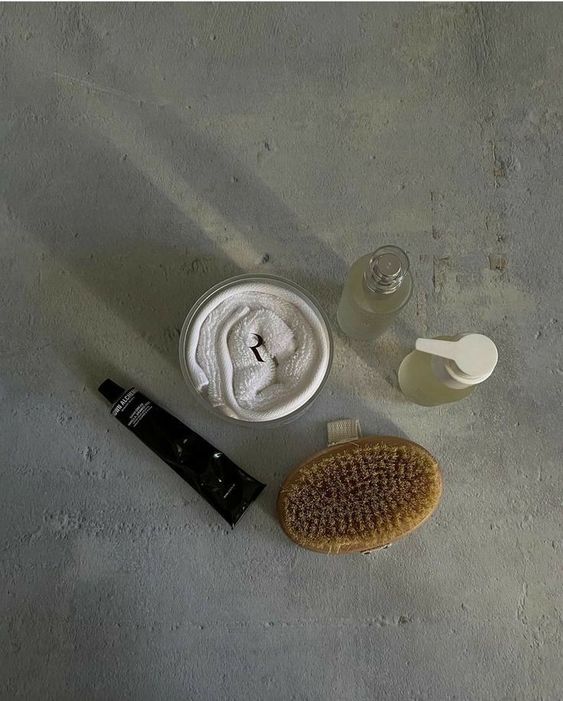
The benefits of collagen are literally everywhere. We are being bombarded with all sorts of supplements that allegedly keep our collagen in good shape. But, does ingesting these drinks really make a difference? Or, are they just a hype and a complete waste of money? And, what about the safety of these products? The purpose of this article is to tackle those pressing questions and help you make informed choices because not everything is crystal clear when it comes to collagen drinks.
What is collagen?
Collagen is a fibrous protein that can only be found in the connective tissue, bones, cartilage, corneas, dermis, tooth dentin, etc., and extracellular matrix of animals[1]. As previously discussed in our beauty myths post, there is no such thing as plant-derived collagen[1]. In the vegetable kingdom, cellulose, and polysaccharides, a fiber and a sugar, respectively, provide the structural support that the plant needs[1]. It is estimated that collagen represents 30% of the total protein composition of animals, making it the most abundant protein in those organisms[1]. Even though the human body is composed of approximately 28 types of collagen, type 1 accounts for 90% of it[1]. As impressive as it might sound, 75-80% of the dry weight of human skin is made up of collagen[2]. Type 1 and type 3 are the most predominant in human dermal tissue[1].
Collagen is produced by a group of cells called fibroblasts[1], which are also responsible for the secretion of hyaluronic acid. Each collagen fiber consists of a chain of multiple amino acids that is particularly rich in glycine, lysine, proline and hydroxyproline[1]. Collagen performs a series of key functions, including[1]:
- Supports the structural integrity of skin tissues
- Provides elasticity
- Protects the skin by preventing the absorption of obnoxious substances
- Promotes healing of damaged tissues
- All of the above results in a smooth, firm, and supple complexion
What's really interesting is the fact that the amino acids that make up collagen are non-essential, which means the body produces them (except for lysine). The problem is that, once we reach our early 20s, our collagen production declines 1%-1.5% per year[1]. This has prompted many companies, experts (and so-called experts) to recommend the intake of collagen supplements.
The question is, do they really live up to the expectations? Well, this is really hard to tell. Most of the studies that apparently prove the benefits of collagen are funded by the companies that manufacture them. The same applies to the health practitioners that advocate their use: they either offer their own collagen products or are sponsored by collagen drinks companies. As you can see, there are a lot of vested interests at stake. It is extremely difficult to find an unbiased opinion.
There is no doubt that collagen, once it is broken down into amino acids by the stomach gastric juice, does reach the bloodstream. From there, no one can guarantee that those amino acids will be transported to the skin. In order to secure its proper absorption, companies are offering collagen hydrolysate drinks. Producing a collagen hydrolysate entails breaking down collagen I and III into light-weight peptides via the action of acid/alkaline chemicals (this results in gelatin) or an enzyme called protease[4]. The latter is the preferred method (yet, expensive) as it yields molecules which are smaller and much more absorbable.
Based on a couple of independent studies, it does seem that the skin might benefit from collagen drinks ingestion. After 4-12 weeks of treatment, supplemental collagen showed a moderate increase in elasticity and skin moisture retention[5][6]. The results are promising, but not conclusive. No honest health care practitioners recommend investing an average of US $30.00 per month in collagen drinks. Furthermore, we do not know if these benefits are actually promoted by collagen supplements or by a change in dietary habits (which are common when people start taking these drinks). So, is there scientific proof of what we can do in order to promote healthy collagen in the body? Oh yes! There is one practical, non-costly and effective measure that you can implement to keep your collagen supple: implement habits that prevent it from deteriorating (and eliminate those that contribute to its breakdown). The number 1 no-no process that you have to minimize is glycation, which can happen both internally, by metabolic processes, diabetes, etc., and externally, cooking methods that produce browning of food[7].
Glycation is an enzyme-mediated reaction that produces AGSs (Advanced Glycation End Products) when sugars bind to proteins or lipids[7]. Excess AGSs not only affect the glutathione levels produced by the body, but also alter the structural nature of tissues[7]. For example, the binding of AGSs with collagen makes its fibers stiff and brittle that contribute to the formation of fine lines/wrinkles as well as sagginess[7]. It then makes sense to minimize sugar consumption and switch to non-browning cooking methods. In addition, certain herbs, spices, minerals, vitamins, and flavonoids have a neutralizing effect against glycation when taken on a regular basis[7]. Speaking about vitamins, ascorbic acid (vitamin C) works as a cofactor in the collagen synthesis process because it kick-starts the enzymes that convert lysine and proline into their bioactive form. This conversion is absolutely essential for the production of collagen[8]. Also, vitamin C stimulates the fibroblasts (collagen-producing cells) into synthesizing collagen[8]. Securing proper levels and absorption of vitamin C is crucial for collagen formation.
The second process that needs to be paid attention to is the inhibition of the enzyme that breaks down collagen: collagenase[9]. Our bodies do need to degrade old collagen, but even healthy collagen is damaged by this enzyme when we age or when we make unhealthy lifestyle choices[9]. The good news is that a number of herbs, spices, flowers, and fruits have exhibited a very high anti-collagenase activity[9]. A word of caution: even though these collagen drinks are considered safe, there are some aspects that need to be taken into account before buying them. The supplements industry is highly unregulated and unless some independent studies have been conducted, there is no way to know if a formula will live up to its claims. Also, pork-derived collagen has been linked to allergens in certain individuals[10]. That prompted most companies to switch to the bovine-based collagen (it has now become the number 1 source). The downside of that type of collagen is that it could be contaminated with bovine spongiform encephalopathy, also known as mad cow disease[10]. Now, the chicken and fish options are being explored. Unfortunately, measurable levels of heavy metals have been detected in certain collagen supplements, namely arsenic, cadmium, lead and mercury[11]. Exposing yourself to even more heavy metals (now in an ingestible form) is the worst idea if your goal is to ward off premature aging. You will not face these challenges with the “vegan collagen supplements”, but they do not contain any collagen. They are just a mixture of amino acids, vitamin C and other antioxidants.
Instead of putting you at risk, and make recommendations that are suitable for vegetarians/vegans, we have created a to-do-list for collagen maintenance that is 100% backed by science:
- Workout at least 3-4 days per week for a minimum of 30 minutes
- Try to sleep at least 7 hours per day (and turn in before 10 pm, if possible)
- Steer clear of excessive alcohol consumption
- Quit smoking and avoid cigarette smoke-filled environments.
- Properly shield yourself from the sun in the shade, with a mineral-based sunscreen and by wearing protective clothing.
- Drink a cup of bone broth or eat a portion of gelatin (sweetened with stevia or monk fruit) per day. If you are vegan, you could benefit from taking 1 teaspoon of agar-agar daily (or eating vegan jelly).
- Increase your vitamin C intake. This vitamin can be found in foods such as: acerola cherries, berries, broccoli, brussels sprouts, camu-camu, citrus fruits, guavas, kale, and bell/chili peppers. Go easy on caffeine as this could interfere with your vitamin C absorption (like nicotine and cooking at high temperatures).
- Eat high quality protein sources like free-range eggs, low-mercury, fish, organic poultry, grass-fed, algae, gluten-free grains, legumes, nuts & seeds.
- Minimize your consumption of hydrogenated fats, saturated fats, high glycemic foods (including refined sugars), and heavily processed foods.
- Make steaming and boiling your preferred cooking methods. Try to avoid as much as possible charring, baking, broiling, roasting and/or frying your food.
- Incorporate more zinc, beans, chicken, meat, shellfish, nuts & seeds, yogurt, and copper-rich foods, dark chocolate, leaf greens, seafood, shiitake mushrooms, tofu, nuts & seeds.
- For a glutathione boosting action, eat more asparagus, avocadoes, peppers, carrots, spinach, and cruciferous vegetables (broccoli, cauliflower, cabbage, etc.).
- For inhibition of excessive AGEs take any of the following: vitamins C & E, niacinamide, selenium, alpha-lipoic acid, green tea, N-acetylcysteine, spices, those present in blueberries[7]. The supplements listed here require a health practitioner´s approval.
- Collagenase action can be counteracted by green/white tea, lavender, bladderwrack seaweed (fucus vesiculosus), rose tincture, angelica, anise, and pomegranates[9]. Do not forget to consult your physician first.
As you can see, preserving your collagen in good shape does not require you to spend hundreds of dollars on collagen drinks or turn to extreme measures. All it really takes is to incorporate healthy habits and maximize your intake of foods that are readily and widely available. To learn more about healthy habits related to your skin, make sure to follow us on Instagram, Facebook, Pinterest, and Linkedin.
References
[1] https://www.japsonline.com/admin/php/uploads/1466_pdf.pdf
[2] https://my.clevelandclinic.org/health/articles/10978-skin
[3] https://parjournal.net/article/view/3863
[4] https://scialert.net/fulltext/?doi=jas.2014.1319.1323
[5] https://pubmed.ncbi.nlm.nih.gov/23949208/
[6] https://pubmed.ncbi.nlm.nih.gov/30681787/
[7] https://www.ncbi.nlm.nih.gov/pmc/articles/PMC3583887/
[8] https://www.ncbi.nlm.nih.gov/pmc/articles/PMC3583887/
[9] https://www.ncbi.nlm.nih.gov/pmc/articles/PMC2728709/
[10] https://www.consumerlab.com/news/consumerlab-tests-reveal-best-collagen-supplements/10-04-2019/




